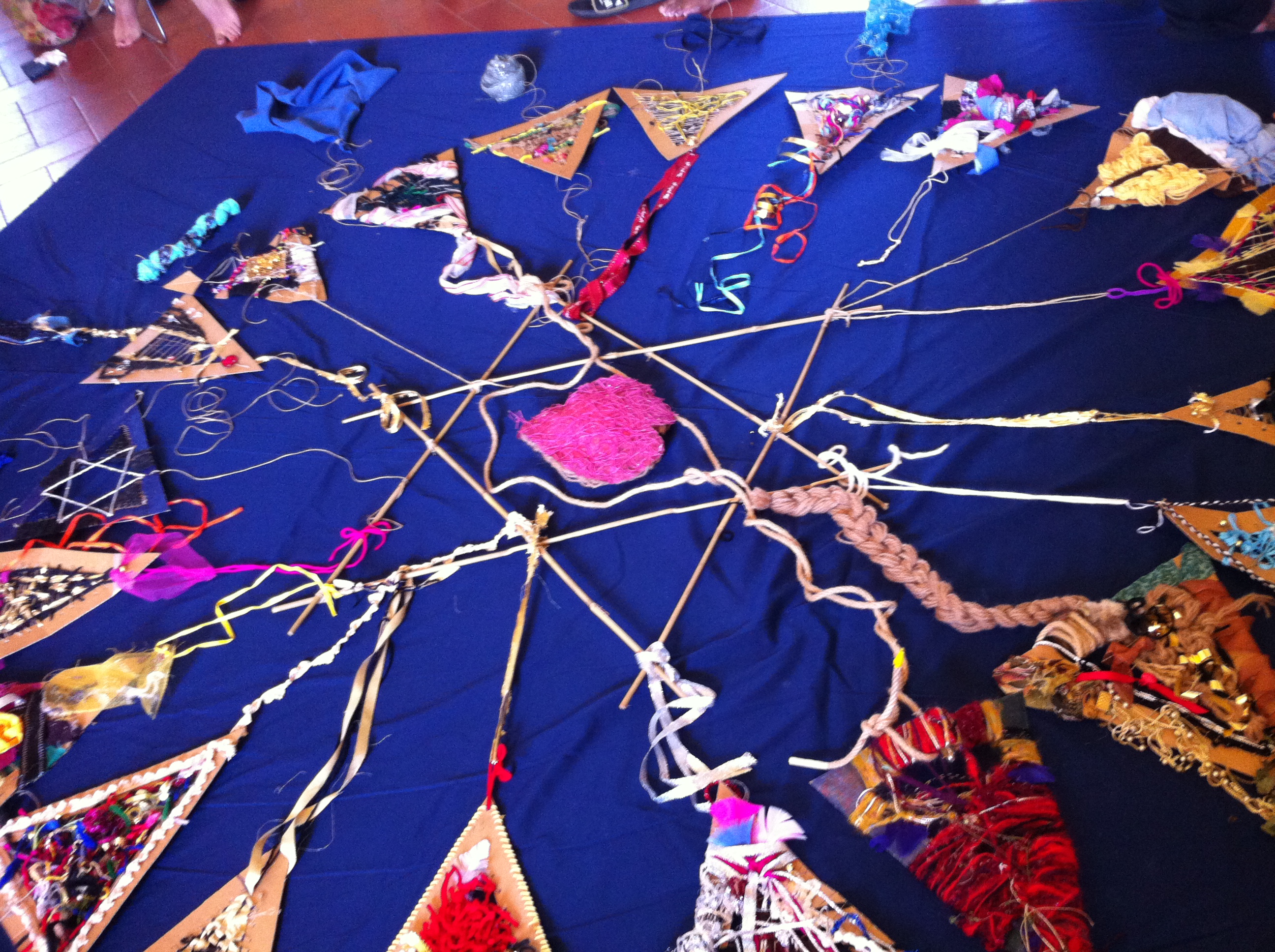“You can’t always get what you want. But if you try sometime, you’ll find, you get what you need.” Mick Jagger
I’m not actively seeking enlightenment, I am just taking out the trash, but enlightenment comes when it will. The spirit knows what we need, and it finds us.
As I approach the metal bins on Tuesday morning, I notice a man already there. His back is to me, and he is pulling items from the smaller of the two dumpsters. A long, brightly colored fleece scarf and a black wool jacket were already draped over the side of the bin. His head pops up, and in his hand is a backpack, black canvas with brown leather trim. The man studies the backpack carefully.
I say hello as I approach. He holds out the backpack, “Look how nice this is. Why would anyone throw this away?” I agree the backpack is very nice as he continues to study it.
“Oh! It’s missing a snap. I can fix that!”
“Are you the man who lives behind the storage facility next door,” I ask.
“No, that’s Dave, but I watch out for him. I just found him a coat,” and he pulls a black wool jacket from the side of the dumpster. As if on cue, Dave and a woman walk up behind me.
“Hey, take this,” and he tosses the jacket to Dave. “Winter is coming. You’re gonna need it.” Dave thanks him and walks on.
“I didn’t always live like this,” Ed says to me. “I’ve come and gone from this life mostly due to drugs.” He was a skilled tradesman and once lived a middle-class life, complete with his own sailboat. Medication prescribed for his bi-polar disorder, however, made him feel lifeless and numb. For years, he has been waging his own war on drugs. Sometimes he thinks he is winning. Other times, losing. Most recently, he has been going to the local methadone clinic daily and trying to stay clean.
Ed is a handsome man. His face is tan and glowing on this chilly morning. He has a broad and easy smile that reveals straight white teeth. He is clean shaven and fit. Ed explains that he gets around on a bicycle and logs hundreds of miles a week. He uses his bicycle basket and a grocery cart to gather and deliver goods to other homeless people in the area. He is their Robinhood. Ed used his talent as a skilled tradesman to craft a shelter from the loose pieces and parts that he found. I see him eyeing an old gas range. “That’s a nice stove,” he says. I have no doubt that he can get it working.
As we chat, Ed continues to poke around inside the dumpster. He takes out an unopened soft drink can. That find is followed by a sealed bag of ground coffee. “Look,” he says as he holds the items out toward me. “Someone kind must have left these for me.”
Later that day as I grudgingly “make time for exercise” by pushing myself outdoors onto the shared bike/walking path, Ed zips by on his bicycle. He pedals hard. The wind is in his face, a wool cap covers his head. Ed looks happy. And free.
A spirit rises from the dumpster and whispers to me: Free is a lifestyle. A frame of mind. A choice.

Admonished, I walk on, pondering my own recent restlessness and moments of dissatisfaction. A combination of pandemic boredom and isolation leaves me feeling like a prisoner some days. Despite my best efforts to stay engaged, there are times when I feel as though I am living someone else’s life, as if I entered the wrong movie set. I wonder where my life went. Friends and neighbors talk about these same experiences. They tell me that despite boredom and loneliness, they are finding it hard to rally the motivation to move beyond it. They feel stuck.
There seems to be a new type of long Covid affecting even those who never suffered the disease. Meaning dripped from our lives during long months as the pandemic stretched out like a pipe full of pin holes. Our initial emotional response to fight and survive diminished. People are weary and searching for meaning. Things have changed. We have changed. Our pre-pandemic lives are not coming back. What will our new lives look like? How will we get there?
And then there is Ed. He is the star of a survivor show, a winner at an extreme sport, a master of an obstacle course. Ed finds a sense of belonging, mastery, independence, and generosity in his homeless lifestyle – all the ingredients of resilience and a good life. He does not struggle to explain himself or to fit in. He is an expert and an adventurer without the limitations of expectations.
Ed speaks with energy and joy. His day is filled with moving mountains, even if made of trash. I am envious. He accepts himself and his lifestyle. He is busy doing good for others. He still believes people are kind. He doesn’t examine the discarded groceries for expiration dates or wonder why someone might throw them into the dumpster.
Ed lives on a rugged urban frontier, a grocery cart his covered wagon. He is focused on survival, but he is not self-centered. His survival is possible because he is protecting the survival of others. He lives without technology but is well equipped to live in the world and to master it. He is not a social problem, he is a problem solver. Discarded himself, he sees potential in everything.
When we have all the time in the world, it is hard to fill that time with meaning. I can see in Ed that effort gives meaning to action, to life. Life is better when you keep believing that people are kind and looking out for you, when you take pride in looking out for them.
I’ve never met Mick Jagger at the dumpster, but on Tuesday, Ed was there to greet me.







